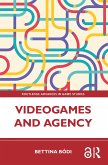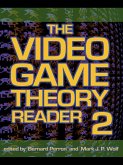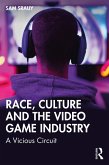An essential exploration of the video game aesthetic that decenters the human player-requiring little human action-and challenges what it means to play. Do we play video games or do video games play us? Is nonhuman play a mere paradox or the future of gaming? And what do video games have to do with quantum theory? In Playing at a Distance, Sonia Fizek engages with these and many more daunting questions, forging new ways to think and talk about games and play that decenter the human player and explore a variety of play formats and practices that require surprisingly little human action. Idling in clicker games, wandering in walking simulators, automating gameplay with bots, or simply watching games rather than playing them-Fizek shows how these seemingly marginal cases are central to understanding how we play in the digital age. Introducing the concept of distance, Fizek reorients our view of computer-mediated play. To "play at a distance," she says, is to delegate the immediate action to the machine and to become participants in an algorithmic spectacle. Distance as a media aesthetic framework enables the reader to come to terms with the ambiguity and aesthetic diversity of play. Drawing on concepts from philosophy, media theory, and posthumanism, as well as cultural and film studies, Playing at a Distance invites a wider understanding of what digital games and gaming are in all their diverse experiences and forms. In challenging the common perception of video games as inherently interactive, the book contributes to our understanding of the computer's influence on practices of play-and prods us to think more broadly about what it means to play.
Dieser Download kann aus rechtlichen Gründen nur mit Rechnungsadresse in A, B, BG, CY, CZ, D, DK, EW, E, FIN, F, GR, HR, H, IRL, I, LT, L, LR, M, NL, PL, P, R, S, SLO, SK ausgeliefert werden.









